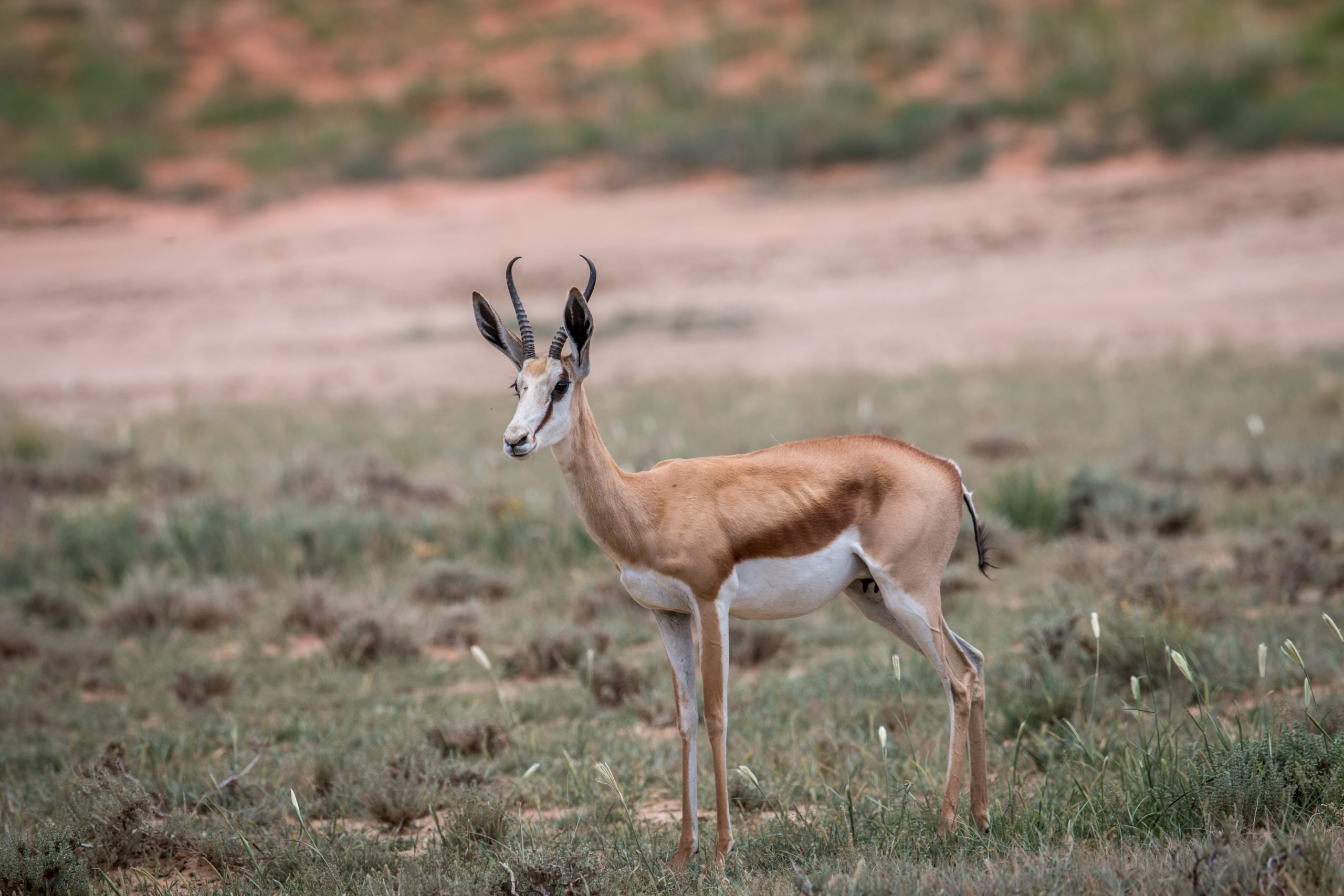South Africa’s Zip Zap Circus works to end racial segregation and foster trust, dedication and teamwork.
Fred De Vries| April 2008 issue

A circus? Twelve-year-old Andiswa Nkebendu, raised by her mother in the notorious Khayelitsha township near Cape Town, South Africa, had never heard of such a thing. When a friend took her to the Zip Zap Circus rehearsal studio, a new world opened up for her. Kids her own age were hanging from ropes and swinging from a trapeze. Andiswa wanted to do that too. She applied, and soon she was part of the human pyramid. After that, she balanced in the rings. The trapeze eventually became her specialty.
And now, seven years later, Andiswa and her 21-year-old friend, Portia Kewane, are stealing the show at the O.R. Tambo Hall, Khayelitsha’s community centre. Their arms and legs are twined together, high above the ground. The audience stares open-mouthed at the two young women; they could break their necks any second. But it all ends well. Andiswa and Portia are so skilled on the trapeze by now that they’ve just signed a contract with the UniverSoul Circus to spend two years performing in the United States.
America! Away from the slums, crime, murder and rape that have made Khayelitsha one of the most dangerous places in South Africa. Sure, she nods, smiling broadly, of course she’ll miss South Africa. Her mother especially. But her ‘family’ of circus performers too. This isn’t her first time abroad though. “We’ve travelled all over Europe with Zip Zap,” she says nonchalantly.
What would Andiswa be doing now if she hadn’t joined Zip Zap? “Hanging around on street corners,” she says without hesitating. “Doing nothing, like all my friends from school. They really look up to me now.”
The man who helped Andiswa Nkebendu scale such acrobatic heights is standing a little way down the hall. Brent van Rensburg is stocky, with dark curly hair tied in a ponytail. Thirteen years ago, he and his French wife, Laurence Esteve, drove his delivery truck – with ropes, mats and a bunch of kids in the back – to a Grahamstown art festival for their debut performance. It was the beginning of the realization of his dream: starting a circus school for underprivileged South African kids, an environment in which colour didn’t matter, and trust, dedication and teamwork did. Emphasizing play and interaction, the circus would bring together kids from starkly different backgrounds. Whether your pal was rich or poor, black or white, when he’s flying through the air, you don’t let him fall.
“Kids are colour-blind,” says Esteve. “They live together and play together. If you teach them to get along with each other in a safe environment, they’ll quickly come to trust each other.”
Van Rensburg adds, “Away from the politics and the bullshit,” referring to the violent times around the first democratic elections in 1994. “We wanted to see if we could make a difference.” His circus would be a rainbow nation at the micro level.
Like most of his pupils, Van Rensburg comes from a broken family. He grew up poor and white in a shanty in Cape Town’s Observatory suburb; by age 10, he was bouncing on a trampoline. Six years later, he was a professional trapeze artist. He travelled through Europe, the U.S. and the Caribbean, where he met Esteve while performing at Club Med. She learned the circus trade from him.
In 1991, they went on vacation to South Africa together, after Van Rensburg had to stop performing because of back trouble. There, he acquired a new ambition: He’d start a free circus school for the young people he saw hanging around on the streets. The school would be a base for them, a place they could learn circus acts – and in the process, lessons on building a society with other people. He went recruiting at his old high school, another school in a black township and a shelter for street kids. A year later, the first pupils – white, black and mixed-race – were flying through the air.
Kids who join Zip Zap can decide for themselves how often to come and how long to stay. Some have been here since the beginning. The dozens of members are divided into three groups: the most promising artists, pursuing careers in the circus; those for whom the circus is a hobby; and kids with HIV who regain their self-confidence by doing the acts.
The circus supports itself through performances and international tours (20 in 15 years). Nelson Mandela is a fan, and so is Canada’s famed Cirque du Soleil, with which Zip Zap collaborates. There’s no dearth of quality here. Shortly before Andiswa Nkebendu and Portia Kewane signed their American contract, Zip Zap’s Jose Dorego and Kagiso Mutlane – the Joka Boys – won a Golden Clown at Cirque de Demain, Paris’ international circus festival.
Sooner or later, many young South Africans from slums and broken homes get involved in alcohol, drugs and gangs. Van Rensburg often sees problem cases. His principle is to be tough but fair. Drug or alcohol use gets you a warning; three warnings and you can pack up your stuff. “But there’s no warning for stealing,” he says. “That’s it – you’re out.”
Andile Poni, 29, was one of those problem cases. He was part of the first crop of Zip Zap artists in 1992. “I joined the circus because I like challenges,” he says. “I wanted something different, and there weren’t many circus artists of my colour.” Poni – small and slight – became a clown, acrobat and juggler. After a couple of years, he left Zip Zap to work at a brewery. One day almost 10 years ago, someone tried to rob him with a knife. Poni took away the weapon and beat up his attacker so badly that the former clown ended up behind bars for six years.
In his cell, Poni came to his senses. He remembered what he’d learned during his years with the circus, and the oft-repeated mantra “Respect, love, trust.” “We were like a family,” Poni recalls. “We slept and ate in the same room. It didn’t matter what colour you were. Brent and Laurence were like a father and mother to us.”
His insight inspired Poni to join the prison choir and gumboot dance troupe. After he was released two years ago, he founded a volunteer organization that provides projects for unemployed people in Khayelitsha. “Everything I am today, I owe to Brent and Laurence,” he says.
Back at O.R. Tambo Hall, Andile Poni is doing duty as ringmaster. Decked out in a bright red suit, he talks between the acts about respect (the Aretha Franklin hit rings out) and imagination (John Lennon’s “Imagine” plays), alternating between English and Xhosa. The room is filled with thousands of children, mothers and chaperones, most from Khayelitsha.
Onstage with the professional-track Zip Zap kids are their HIV-positive friends from Khayelitsha’s clinics. They’re still fumbling a bit, but that doesn’t detract from the fun. The show’s message is clear: AIDS is nothing to be ashamed of, and it should never be a reason to exclude people.
Pamela Sidinana, 32, sitting next to me, concurs. She contracted HIV 11 years ago after being raped. She has come to the circus with her two young sons and a group of HIV-positive children. Pointing to the stage, where the performers, now dressed as wild animals, are enthusiastically executing an act, she says, “Look. Those kids handle it so well. Some of them have been raped, but look at the guts and self-confidence they radiate.”
After the show, I ask Sidinana’s sons who their favourites were. They look shyly at the floor. Their mother pokes them. Softly, they say, “The girls who flew through the air.”
Fred de Vries is a freelance journalist living in Johannesburg, South Africa.











